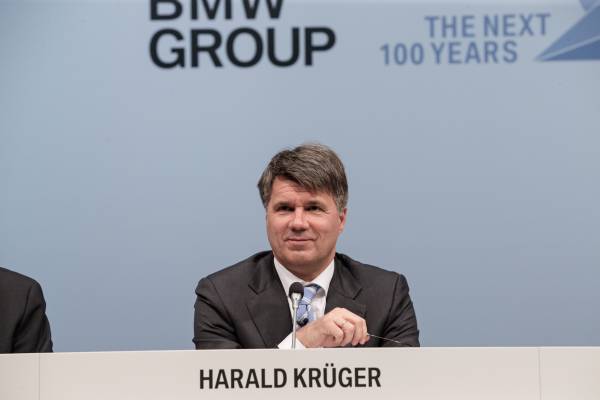BMW has announced a new strategy under which it would focus on electric vehicle technology, autonomous driving technology and invest in new technology to complete against companies like Google and Uber.

It will focus on broadening its technological expertise, expanding the scope of digital connectivity between people, vehicles and services and strengthen sustainable mobility.
At the Annual Accounts Press Conference in Munich BMW board of management chairman Harald Krüger said: "Throughout its 100-year history, the BMW Group has always reinvented itself."
"As a pioneer of new technologies, the company has shaped change, within both the industry and the world of mobility. We are setting the standard with our Strategy NUMBER ONE > NEXT, both now and in the future.
"We will lead the BMW Group into a new era, one in which we will transform and shape both individual mobility and the entire sector in a permanent way."
BMW will develop a new i Division car, called iNEXT, which will be lightweight with autonomous and digital technologies. The brand will develop futuristic technologies and services which will be transferred to the BMW model range.
Krüger adde: "BMW iNEXT heralds the next era of mobility."
"This symbol of our technology leadership will demonstrate how we will bring the future of mobility into series production."
It also says that it has been increasing the scale of electrification of its models. The present plug-in hybrids are of third generation with fourth generation hybrids to be introduced in the near future and fifth generation hybrids are being developed.
These next generation hybrids will have an enhanced range and will reduce emissions drastically.
BMW is planning to release seven plug-in hybrid BMW iPerformance models which will be either purely electric, similar to BMW i3, or feature a combination of combustion engine and electric motor as plug-in hybrid solutions.
The company is also planning to release more such models like plug-in hybrid MINI while plug-in hybrid sports car BMW i8 will be added to by an open-top BMW i8 roadster.
Research is underway at BMW to develop hydrogen-fuel-cell technology. At present, the range of test driven vehicles is 700 km.
According to the company, new drivetrain technology in the future will enable higher efficiency, low power consumption and low cost.
Apart from this, the company believes that its traditional or core business of making powerful internal combustion engines will continue for many years to come because changes will not come abruptly, but over a period of time.
Until then, the company wants to produce cars powered by combustion engines, but with fuel efficiency and emissions levels in mind.
The company has also started its project i 2.0, under BMW plans to advance automated and fully networked driving technology. Under the project the company will develop high definition digital maps, sensor technology, cloud technology and artificial intelligence.
BMW said member of the Board of Management responsible for development of the technology Klaus Frhlich said: "Our focus is clear: we are securing the BMW Group's position as technological market leader.
"With project i 2.0 we will lead the field of autonomous driving. We will turn research projects into new kinds of industrial processes, bringing future technology onto the road."
As part of its new strategy the company is looking to supply 200,000 vehicles to customers in 2020 as well as plans to enter into motorcycle segments with below 500 cc bikes under new BMW G 310 R.
Image: BMW chairman Harald Krüger at press conference. Photo: Courtesy of BMW.





